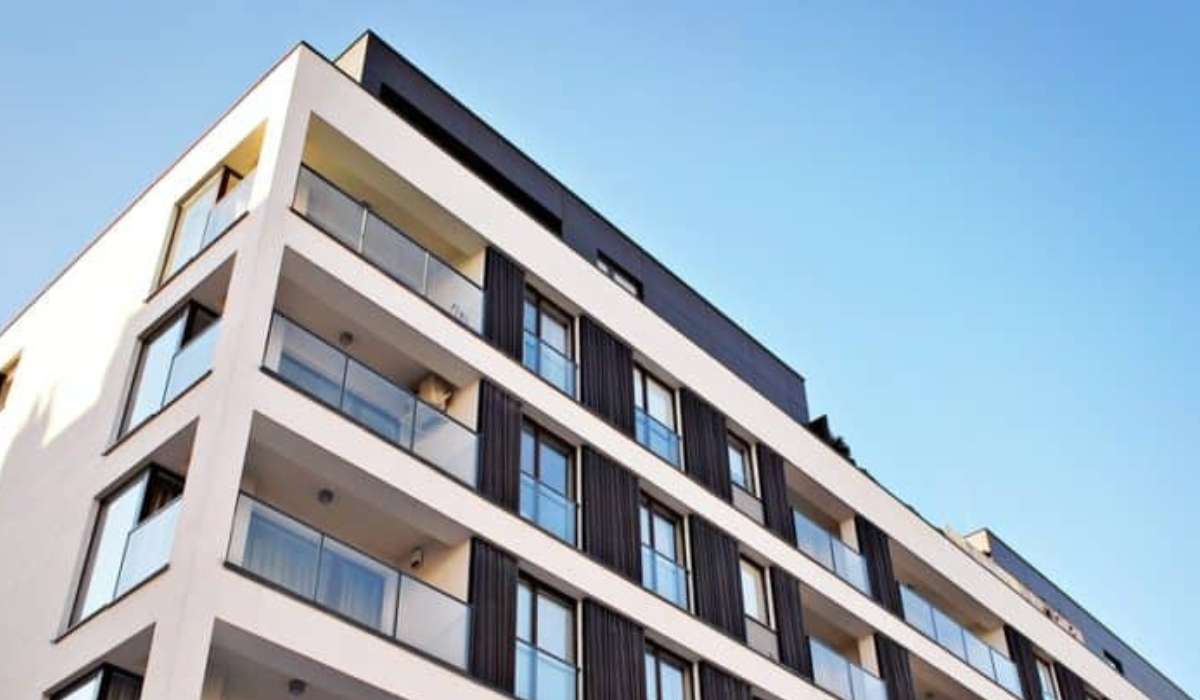The floor of your apartment can greatly influence your living experience. While some people prefer living on the top floor, others avoid it completely. If you’re unsure about purchasing a top-floor apartment, it’s important to weigh both the benefits and drawbacks. Read on to learn about the pros and cons of living on the top floor.
See also: Tips to crack a good deal while investing in commercial real estate.
Pros and cons of a top-floor apartment
Apartments located on the top floor come with both benefits and drawbacks.
Advantages of apartments on top floor
Here are some of the key benefits of a top-floor apartment.
- Stunning views: Top-floor apartments offer unmatched scenic vistas, whether it’s a city skyline or a natural landscape, providing a unique perspective from an elevated position.
- Enhanced privacy: Residing on the top floor ensures reduced noise and increased privacy, shielding occupants from the disturbances of foot traffic and neighbouring units.
- Abundance of natural light: With unobstructed access to sunlight, top-floor apartments are typically brighter and more cheerful, creating a welcoming and lively ambiance.
- Exclusive amenities: Many top-floor apartments come with special amenities, such as private terraces, rooftop gardens, and recreational facilities.
- Increased security: Burglars are less likely to target top-floor apartments due to the challenges involved in accessing them, making these units more secure against break-ins.
- Reduced pest infestation: Living on the top floor means fewer encounters with rodents, bugs and pests, which are more commonly found in ground-floor units closer to their natural habitats.
- Higher rental income: Investing in a top-floor apartment can yield a good return, as these units are often in high demand. They typically command high rental prices and are rented out quickly.
Disadvantages of apartments on top floor
Some of the key challenges of living on a top-floor apartment include:
- High cost: Top-floor apartments, often considered penthouses or exclusive units, typically come with a higher price tag, especially in areas with mild weather year-round.
- Maintenance difficulties: Maintenance work on the top floor is more labour-intensive and costly, as it requires transporting construction materials to the upper floors.
- Limited emergency evacuation options: Evacuating from higher floors during emergencies like earthquakes or fires can be challenging. It’s crucial to be familiar with the evacuation plan for your floor to ensure safety during such events.
- Accessibility issues: Power outages or elevator maintenance can make it difficult for elderly individuals or those with mobility issues to access top-floor apartments. Additionally, moving furniture in and out can be more cumbersome.
- Lack of outdoor space: Unlike ground-floor apartments that often feature private gardens, top-floor units may have limited outdoor space. Balconies on these floors are typically smaller, though some properties might offer roof terraces.
- Poor thermal insulation: While direct sunlight can brighten a top-floor apartment, it can also cause significant heat. Without proper insulation, the apartment may experience major temperature fluctuations, leading to higher energy bills. It’s important to check the property’s insulation before purchasing.
Things to consider while purchasing a top-floor apartment
If you’re considering buying a top-floor apartment, it’s essential to evaluate several factors:
- Fire safety: Although you may not need to use fire extinguishers frequently, ensure they are regularly checked, renewed and not expired, so they are ready for use in an emergency.
- Seepage issues: Top-floor apartments can be prone to seepage, especially during the monsoon season. Consult with a real estate agent about any potential seepage problems and get them fixed promptly if it arises.
- Power backup for elevators: As you don’t always want to take stairs to reach the top floor, verify that the building has a reliable power backup system for the elevators to always ensure smooth access.
- Resale value: Top-floor apartments often have higher resale value due to their advantages. Research the real estate trends in the area to understand the market potential and resale prospects.
- Building inspection: Conduct a thorough inspection before investing, particularly if the apartment is in an older building. Look for issues like sagging floors and ceilings to address any problems before they become serious.
Are top-floor apartments worth it?
When considering whether to buy a top-floor apartment, it’s crucial to weigh both the benefits and drawbacks. Top-floor apartments offer stunning views, enhanced privacy and unique amenities, making them highly appealing to those seeking an exclusive living experience. However, they come with higher costs, maintenance challenges and potential accessibility issues. Your decision should be based on your personal priorities and preferences. If you value tranquillity, breathtaking vistas, and are willing to invest in a premium living space, a top-floor apartment might be the perfect choice. Conversely, if you’re budget-conscious or concerned about heat and accessibility, a low-floor apartment may be more suitable. Ultimately, careful consideration of these factors will help you take an informed decision that best suits your lifestyle and needs.
FAQs
Are top-floor apartments more expensive than low-floor units?
Yes, top-floor apartments generally cost more due to their panoramic views and exclusive amenities.
Do top-floor apartments get hot during summers?
Yes, top-floor apartments can become hotter in the summer as they are exposed to direct sunlight.
Is it easy to sell a high-floor flat?
Selling high-floor flats can sometimes be challenging, as potential buyers may be deterred by the increased heat in summer and the difficulties associated with moving goods and performing maintenance work on high floors.
Do top floors have leakage problems?
Top floors can experience leakage issues due to cracks that develop over time from climate fluctuations. Even minor cracks can worsen over time, causing problems for homeowners.
Do you have roof rights when living on the top floor?
Yes, in India, purchasing the top floor often includes roof rights, which is typically specified in the agreement.
| Got any questions or point of view on our article? We would love to hear from you. Write to our Editor-in-Chief Jhumur Ghosh at jhumur.ghosh1@housing.com |







